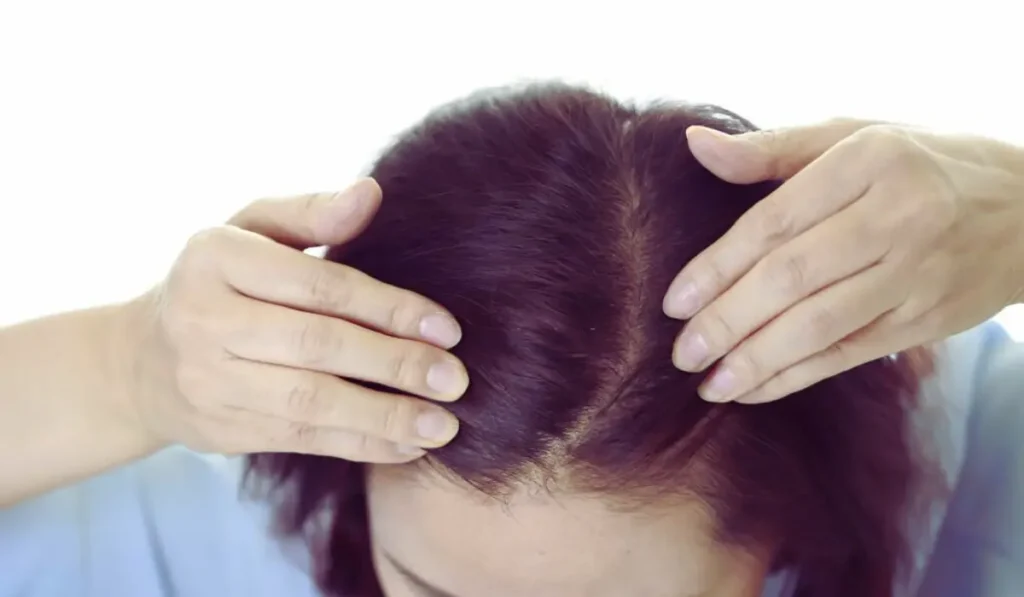Calcium deficiency known as hypocalcemia can affect the epidermis, capillaries, bones, muscles,or cardiac level. it is often thought that it is responsible for hair loss.
But is this really true? How do you recognize calcium deficiency affects hair loss? How do you recognize calcium deficiency?
Calcium is an essential mineral for the human body to function properly. It is mainly found in bones, muscles, cells and blood. It is important for blood clotting, maintaining normal heart rhythm, muscle contraction, and the proper functioning of many enzymes.
Hypocalcemia is the name given to calcium deficiency. It occurs when plasma calcium concentration is less than 2.20mmol/L. It may be caused by improper eating habits, certain medications, or kidney disease.
Fracture, convulsion, high blood pressure, vitamin deficiencies, lactose intolerance…
thes are all signs tht can be attributed to calcium deficiency.
These characteristic signs usually appear only when calcium levels are low for a long period of time.
Does Calcium Deficiency Affect Hair Loss?
Scientific literature shows that calcium is essential for healthy hair growth, but its role is still unclear. A lack of important nutrients, especially calcium, can disrupt the balance in the body and affect the health of the hair. Study found that mice fed breast milk from mothers severely deficient in calcium and vitamin D developed alopecia at a statistically significant rate, and hair growth normalized when the diet was removed.
In fact vitamin D helps absorb calcium. if they are deficient in any of these nutrients, an individual may also be very deficient in other nutrients.
However, hair follicles contain vitamin d receptors (VDRs) which play a role in hair regeneration and growth.

Study showed that vitamin D receptor (VDR) expression increases during growth. Therefore, vitamin d contributes to hair growth by promoting the anagen phase (anagen). Some may think that a calcium deficiency indicates a vitamin D deficiency, which can promote hair loss.
Another clinical study was conducted over a four-month period on 73 women aged 15 to 45 with hair loss.
coadministration of zinc sulfate capsules and calcium pantothenate tablets resulted in hair growth in the patients. Although these results are encouraging, they are not sufficient to conclude that calcium stimulates hair growth, as these effects may be due only to zinc and not calcium.
It is still difficult to say that calcium deficiency inevitably leads to hair loss. However, since calcium is an essential mineral for the proper functioning of the body, daily calcium intake plays an important role in the health of the hair and its continued healthy growth.
The recommended daily calcium intake for adults is 900 mg.
What Are The Main Food Sources For Calcium?
the main sources of calcium are dairy products, legumes, nuts, grain products, certain leafy vegetables ( such as cabbage, chard, and spinach)seafood, and certain waters that are very rich in calcium.

Why Is Calcium Intake Important For Health
calcium plays an important role in skeletal mineralization and structure. It is required for many biological functions, such as muscle contraction, blood clotting, hormone secretion, and even enzyme activation.
What Are The Health Risks Of Exceeding The Limit?
in the long term, excessive calcium intake by sensitive people can lead to hypercalciuria, or high calcium levels in the urine, which can lead to the formation of kidney stones and calcification of certain tissues. Kidney problems (nephrocalcinosis) may be at increased risk
Above mentioned studies whether it can be directly linked to calcium effects on the hair or not, there is possible evidence that calcium plays an important role in hair growth.
Its importance should not also be limited to this function, as calcium have other important benefits to our overall health

